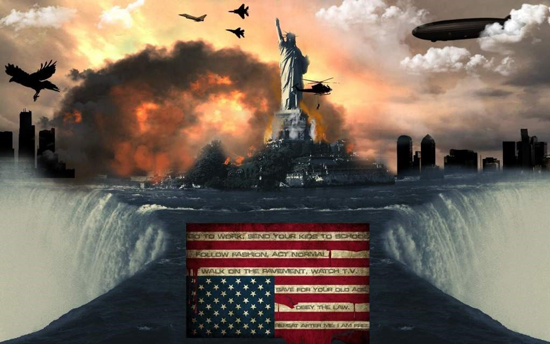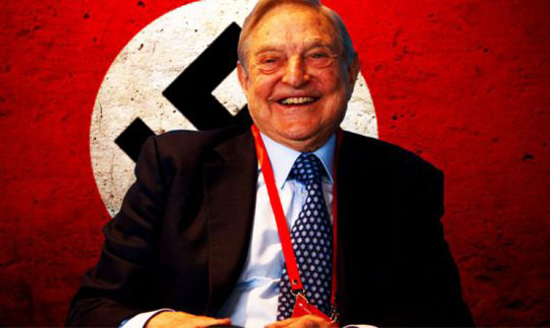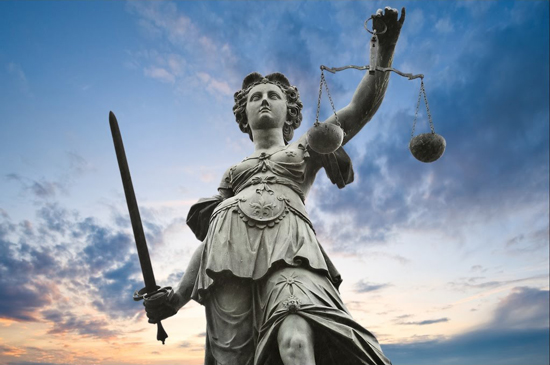Practical Reason Can and Will Defeat the New World Order
Ideological hegemony promotes meaningless human exploitation for the social and political objectives of the few over the many, the inevitable consequences of which are an insistent imposition of political supremacy that the rest of us can identify as oppression.

Marc C. Digiuseppe is an expert on Microsoft VISIO 2003 and 2007. Over the years, he has worked as a systems analyst and technical writer at Exelon Corporation developing new process descriptions and standard operating procedures from that followed the requirements defined in the new NERC CIP Version 5 Reliability Standards.
Digiuseppe was assigned as a Senior Business Process Analyst and Technical Writer reporting to the Director of Solutions Delivery for the Transportation Security Administration (TSA) – Information Technology Infrastructure Program (ITIP) Transition Team. He was also assigned as a Senior Advisor (Project Manager) reporting to the Director of AT&T Consulting, Inc. working on the TNet Program (U.S. Department of the Treasury). He was an adjunct instructor at Mohawk Valley Community College.
Below you can read a very interesting exchange of ideas between Marc C. Digiuseppe and alternative media journalist Jonas E. Alexis, from Veterans Today.
Jonas E. Alexis: In your rigorously factual and scholarly work The Original ‘Antifa’ Was A Jewish Anti-Nazi Militia appeared in the Jewish Daily Forward, you stated:
“Thugs and gangsters during the Charlottesville debacle have progressively become pawns in a revolutionary or subversive movement, which always turns out to be bad for the United States and much of the world.”
Marc C. Digiuseppe: This is a rather compelling observation that can be attributed, to some degree, to the “New World Order Imperative” of sabotaging the rules and principles of formal language as a preferred method of human communications – an insidious and subversive endeavor to sow confusion for, as you and I both know confusion breeds chaos and chaos destroys the contemporary social and political order paving the way for arrogation and the assumption of raw political power. Who are they trying to deceive?
My belief – which, as always, is subject to your critique – is that because we no longer emphasize the efficacy of precise dialog that employs the operational rules of grammar and engagement, we can’t identify the source of the stupidity that is gradually drawing our fellows into an epoch-making conflict of epic proportions.
Millions of our kind no longer have any notion of empathy or sympathy resorting to empty platitudes that barely reveal the fraudulent intentions of their “double-speak” and millions more subscribe to an ideological judgement that, in some way, resolves to kill “the other” to achieve some measure of their dysfunctional notions of what tranquility ought to be.
We are discharged into the caste of one political camp or the other and no one knows what principles might guide any of them, so confusing are the epithets: Neo-Conservative, Neo Liberal, Neo-Nazi, Alt-Left, Alt-Right, etc., so on and so forth.
Of all the conceptualizations used by those of us who claim to have a “conservative” point of view, those of Edmund Burke most profoundly identify and categorize the principles of this intellectual abstraction. From a strictly pragmatic point of view, social and political mores are not established by an academic interpretation of “natural law”, as some believe, otherwise, the observations of sentient human beings would underwrite the conviction that “live and let live” is the principle natural arrangement for the relationship between any living thing and its environment and, we can assert with some clarity, that it is not.
To define “natural law” in terms of a revelatory spiritual or dogmatic theosophy is a self-indulgent, arrogant exercise, antithetical to the human condition; after all, within the planetary population, there cannot be acknowledged one universal understanding that can identify the distinguishing attributes of what might actually define the nature and objective existential presence of Logos in the universe.
Logical arguments can be made for the existence of Logos but the material evidence does not suggest that its divine properties are compatible with any theological assertion describing its character. To think in this fashion deprives us of the objectivity that we must surely pursue in our day-to-day interaction with our immediate experiences – those incidents of our conscious existence beyond the influence and authority of our own self-control.
They present themselves independent of our awareness and are not necessarily conjured by a thought flow concealed within a cloak of innocence and blatant ignorance. Our belief systems may order our ethos but these peculiar beliefs – whatever they might be – cannot universally define the reality of our human condition.
Each of us have the capacity to know what we might “like” but are powerless to guarantee the manifestation of event flows that conform to our individual preferences. The universe can be said to be “infinite” in its functionality and, as such, governed by mathematical probability operating from a domain of our reality just outside of our individual consciousness.
Under these conditions, any cognition of continuity (e.g., our world view) must be artificially manufactured and then maintained by a system of traditional human values originally conceived as an exercise in preferential estimation – selecting one choice point over another even if for obscure or mysterious reasons – one thing leading to another – that are then passed down to survivors of the human community in perpetuity.
Edmund Burke believed that the philosophical, ethical, and moral principles defining any particular social or political mindset are an “intellectual inheritance”. For example, the notion that there exist universally “inalienable” rights is not one formulated through the logical consideration of our individual musing, but exists as a thought flow passed down to us through the communications and historical actions of our forebears and these ideas – now the fundamental elements of our existence – make sense to us and so remain “suitable” to the maintenance of the contemporary human condition.
These abstract parameters form the foundations of the many contrasting cultures of the human condition and it is the integration of these disparate cultures that can be said to construct what we like to call a “civilization”.

The word “civilization” is a “name” for something of which we know nothing about, for we cannot identify it (i.e. name it) until it manifests itself and becomes, to us, something real. This conceptualization can be categorized as an “absolute”, as a civilization must become real in the infinite Universe and cannot exist as a distinct alternate world view defined as a set of finite elements in a closed universe of ideation.
Because our contemporary thinking – as a line of evolutionary “enlightened” ideation – too often employs suggestions articulated from theoretical reasoning, our “social experiments” frequently fail miserably, resulting in the deaths of millions of our kind together with an attendant and unfathomable human suffering. To this extent we are “deficient civilization builders”, for we seem to be constantly engaged in ruthless experimentation the protocols of which have little to do with those egalitarian principles our forebears had insisted were part of this mysterious “natural law”.
Our planetary group thinking is never manifested as a formative hypothesis. Even our contemporary situational awareness is a product of cognitive approximations employed to navigate the unknown possibilities of a future just outside of reality. Stop and think about just what constitutes an ideology of hegemony – its acceptance sponsoring the convictions that lead to abstruse, oblique foreign policy; regime change being a prime example of such intellectual sophistry. We behave like perambulating plants feeling our way toward sunlight.
At this time in our human history, we have been able to define a Western Civilization as something that has influenced the planetary group thinking, orienting our thought flow toward specific human values that originated during the formative period of European culture as it crossed paths with cultures from all over the world during The Age of Exploration.
There is only one civilization and that is Western Civilization – a culmination of inherited values, histories, academic, political, and social traditions passed down to us by our predecessors. There was a time when the coexistence of disparate fledgling civilizations existed here upon this planet but that was a long time ago and in the ancient past of our collective recollection.
Since antiquity, the chronicles of these historical communities – acquired through literature, oral traditions, and archeological investigation – have been absorbed into an all-encompassing mindset to be redefined as the phenomena of heterogeneity in Western thought. Their characterizations exist only as a rhetorical account in our contemporary understanding. Lost in time, they no longer exist, despite the abundance of artifacts that prove they once had a quantifiable presence upon the planet.
So, all of this being said and, hopefully, understood, is it any wonder that Burke cautioned us to be careful in the cause of constructing a “better place” within which the human condition might adapt, be improvised, and eventually allow us to overcome this persistent calamity that now clings to all of us like some unpleasant pest?
Burke advocated maintaining solid moral virtues in society and emphasized the significance of religion as a mechanism for achieving such virtue; he asserted that religion was the glue that kept a society (and therefore its culture) wholesome to the regimen of daily life. He believed that empirical pragmatism in social and political development was arguably more relevant and effective in shaping a thriving society than the application of any revolutionary idealism promoted as an untested theoretical exercise in conjecture.
Burke claimed that revolutionary thought, in general, was destroying the fabric of good society, and condemned the persecution of institutions that resulted from it. He lamented the subsequent catastrophes that grew out of this popular debate between the philosophical revolutionaries of the Enlightenment and advocates of Traditionalism, the French Revolution being one of them.
Human history underwrites Burke’s assertions offering to those of us who take the time to learn from it, material evidence – often witnessed in proof of fact – that describes a model for constructing an engine of social development. It is a model that often leads to the very same “changes” social revolutionaries clamor for and, surprisingly, within a shorter interval of expectation given the fact that revolution often leads to protracted periods of ideological hegemony.
Ideological hegemony promotes meaningless human exploitation for the social and political objectives of the few over the many, the inevitable consequences of which are an insistent imposition of political supremacy that the rest of us can identify as oppression. This phenomenon explains the peculiar attitude towards the American political construct as represented in the thoughts and actions of the founding fathers of the American Revolution.
The prohibition of ideas such as “cruel and unusual” punishment or the insistence upon a “majority rule” grew out of traditionalism – they all having “learned from experience” the merit of those consequences borne out of their historical context in one fashion or another.
Today, no one understands the meaning of the word “Conservatism”! It has been perpetually associated with an academic categorization of political hegemony expressed as “The Right” as opposed to “The Left” when, actually, there exists no such dichotomy. People think in varying degrees of the elements of choice.
No one can say that those who prefer the politics of “The Right” are all racists, social sectarians, and intellectual cretins when, historically, it was those on “The Left” of our national political expression who actually owned slaves, imposed the Jim Crow laws, and promoted the racial Apartheid of our storied past.
Nazis are not a phenomenon of the “Far Right” but the creation, part and parcel, of The Nationalist Socialist Party which we all know as a political movement of Liberal, radical thought growing out of Marxist ideology to become the deformed child of The Left we call Fascism today. Fascist governments have always been, are now, and will forever be socialist, revolutionary, and radical regimes.
Contemporary mountebanks have categorized political expression that cannot be identified as being either on “The Left” or on “The Right” as “Alt-Left” or “Alt-Right”. People in the “Alt-Left” movement are defined by their actions and speech. They are considered radical Marxists dedicated to the act of subverting social mores because they value the cognitive dissonance of the mob, and cling to the misguided efficacy of ignorance and violence.
In truth, they are a contemporary variety of the same “type” of human being that brought about the French Revolution of the late 1700’s or the Communist Revolution of 1917 and the Nationalist Socialist Movement of the 1920s. Historically, these ideologues always bring about an order of human suffering far in excess of any benefit that may have been achieved as a factor if their original political and social objectives.
The Alt-Right hasn’t really been considered more than an inadequately-defined group of people who reject mainstream conservatism in favor of white nationalism (whatever that is, as these paladins of social justice often display ethnic bigotry the “whiteness” of their objectified human exploitation be damned).
They are not “Neo-Nazis” as there is no such thing as a “Neo-Nazi”, just as there is no such thing as a “Neo-Liberal” or “Neo-Conservative” – their origins having been somewhere in the intellectual detritus of “Liberal Crusade” of the late twentieth century. In the grand scheme of intellectual depravity, you are either a Nazi or you are something else.

You are either a Liberal practitioner of speculative estimation or a traditionalist Conservative. Traditionalist Conservatives (in the style if Burke) are given to applying a formative assessment to each experience based on material evidence. They then cautiously make small adjustments to their decision-making processes that result in incremental changes to their microcosmic world view – their intellectual focus being placed on each approaching “choice point” and not the radicalization of any particular movement available for their prescriptive adoption.
True “Conservatives” are not racists or any kind of supremacist as, regardless of race, creed, or color, they believe in the universal rights of every human being as they have inherited that wisdom from their forebears. Historically, such cognition was originally expressed as common law and philosophical insight in the Bible, the writings of Aristotle, the Magna Charta, and the American Declaration of Independence to cite just a few sources for the sake of argument. So much for snappy pseudointellectual categorizations of human tomfoolery.
The problem that we all face in these troubled times concerns itself with the semantics of human ignorance rather than with any particular intellectual exercise in constitutional law. We don’t even know who we are because we’ve stopped thinking like Burke.
In the Liberal camp, we have become dogmatic, institutionally intolerant, and charting paths of violent insurrection against the very political conditions that originally gave rise to our sense of egalitarian ecumenism.
In the Conservative camp, we have forgotten our provenance – our heritage as free thinkers oriented toward practical reasoning and the efficacy of experiential wisdom. The experience of making our own decisions, rooted in the evaluation of risk and the validation of evidence as fact, hasn’t lost its relevance! We haven’t employed that paradigm in ages now and look to where it has taken all of us!
In closing this argument, I would encourage all of my fellows to adapt their social, economic, and political aspirations to one classical camp or the other. Let’s expunge our dialogues of the puerile attempts to confuse the issues with which are now confronted.
We shouldn’t sub-categorize one another into neat little silos of patent insignificance that serve no purpose other than the promulgation of abject confusion. This kind of human sophistry is contributing to the breakdown in human communications and the subsequent violent intolerance we are now made to suffer.
We have languages; let us use them with economy and proficiency. Let us refrain from continued violence before its agitation engenders barbarity and the savage nature of reprisal and retribution. Let us reason with one another. And, amid all of the chaos, let us resolve to make our gestures of reasonableness those choice points that engender an evolving harmony based on small, incremental steps toward consensus – an ideation expressed in the language of Diplomacy as “Détente”.
Jonas E. Alexis: I believe you are completely right in saying that “we no longer emphasize the efficacy of precise dialog that employs the operational rules of grammar and engagement”. One of the primary reasons is that the people who control political discourse in the United States have metaphysically and categorically rejected Logos, the essence of any meaningful dialogue in the political landscape. This is another reason why Benjamin Netanyahu is totally against this dialogue. This is why he is trying to force other countries to adopt his essentially wicked activity.
With respect to “natural law”, it cannot exist without practical reason, and practical reason is logically impossible without Logos. Kant himself quickly found that out, and he eventually admitted that there is a “moral law within me” that cannot be dismissed.

Practical reason is universal. And anyone who dismisses it will invariably affirm it. Moreover, the denial of practical reason will logically lead to relativism, which makes no sense whatsoever. Darwin changed that universal principle and smuggled “survival of the fittest” into the West, and that turned out to be a total disaster. This also has a devastating effect on countries like China.
Darwin’s ideas got transported into China in 1919, and Chinese intellectuals like Yan Fu quickly used them as a vehicle for later disastrous events. “Drawing on the vocabulary of Darwinism”, writes noted historian Frank Dikotter, “Yan imagined that the ‘yellow race’ was in a perpetual state of war with other races. Slogans of the survival of the fittest (youshengliebai, ‘the superior win, the inferior lose’) underpinned a bleak vision of racial competition.”
Yan Fu’s devoted student, Liang Qichao, took those ideas into new territories. “What is history?” he wrote. “History is nothing but the account of the development and strife of human races. Races could be divided into two categories: the historical races (you lishi de zhongzu) and the ahistorical races (fei lishi de zhongzu). The latter were unable to expand and were subjugated by the former, which were more cohesive and united. The red, brown and black races were eliminated from the stage, leaving the drama of history to the yellows and the whites… The future would be white or yellow.”
One can logically argue that the Bolshevik Revolution is quite compatible with the “survival of the fittest” ideology, but we will not touch on these issues now. We will discuss this in more details in an article on Social Darwinism in China.
With respect to the universe, I don’t think I can be shown to be “infinite” anymore. That system has been widely abandoned by people like Stephen Hawking and Roger Penrose. Furthermore, an “infinite universe” logically leads to contradiction, too much to detail here.
Yes, Burke knew that “moral virtues” cannot exist without what we call Logos, which again is the source of practical reason in the moral and political universe. This practical reason will eventually destroy the New World Order as we know it.
In my view, you are also right in saying that Burke had some problems with the philosophical premises of the Enlightenment. E. Michael Jones has a long discussion on this in his book The Jewish Revolutionary Spirit and Its Impact on World History.
As for Nazism, it was neither “Right”, nor “Left”. Nazism was a reaction to Jewish revolutionary movements, namely, Bolshevism and Communism. Dinesh D’Souza has recently come out with a propaganda book incoherently arguing that Nazism was essentially a “Liberal” party. Nothing could be further from the truth.
yogaesoteric
September 22, 2017
